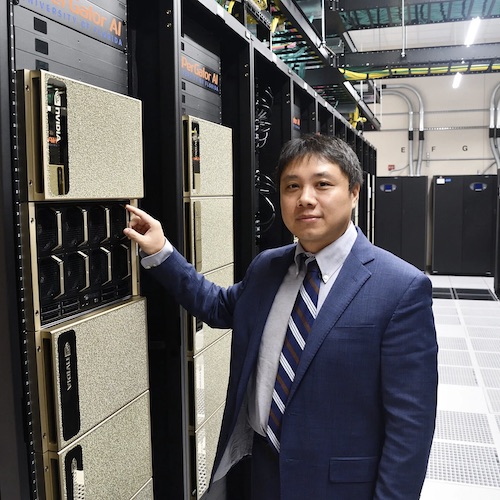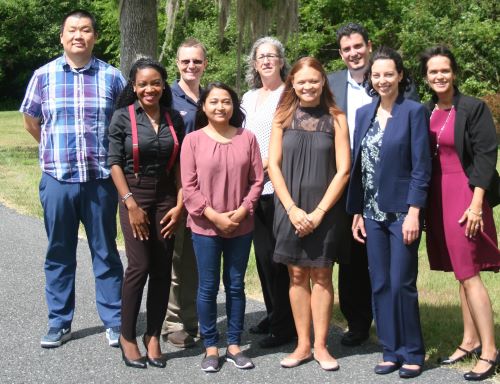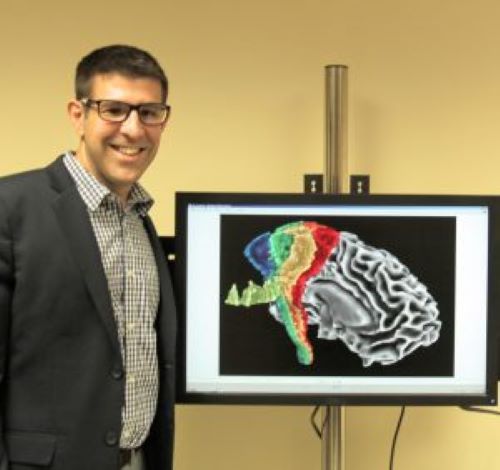 |
Medical AI tool from UF and NVIDIA gets human thumbs-up in first studyA new artificial intelligence computer program created by researchers at UF and NVIDIA can generate doctors’ notes so well that two physicians couldn’t tell the difference, according to an early study from both groups. A new artificial intelligence computer program created by researchers at UF and NVIDIA can generate doctors’ notes so well that two physicians couldn’t tell the difference, according to an early study from both groups. |
Dr. Mildred Maldonado-Molina
 |
Enabling research @ UF Family Data CenterBillions of rows of data that is subject to specific protections under federal and state laws…UF’s Institute for Child Health Policy & the Family Data Center leverages this incredible data volume, often referred to as “Big Data”, to investigate ways to improve healthcare delivery in Florida. But first, staff must ensure the records they are entrusted with are safe from exposure. Dr. Mildred Maldonado-Molina is leading the efforts at the Family Data Center. She worked closely with UFIT to develop a solution that works for research while also compliant with all information security and privacy laws. A scientist, she and her team did not have the time or expertise to build the necessary computing infrastructure. Roland Estrella, manager of clinical research for the Department of Health Outcomes and Biomedical Informatics, summarizes what was built: “Working with UFIT, the Family Data Center developed a robust computing environment. We have on-demand access to data from multiple state agencies and the capacity to process billions of medical and administrative records under strict federal information security guidelines.” |
Dr. Stephen Coombes
 |
Identifying damage in the brain’s superhighwayUF researchers have developed a template showing the brain’s superhighways and how they are impacted by a stroke. The brain images required to create the template were processed on HiPerGator. “We’re interested in the structure of the brain after a stroke,” said Stephen Coombes, assistant professor of Applied Physiology and Kinesiology. “Collecting and analyzing images of brains from people that haven’t experienced a stroke helps us track the different motor pathways in the brain; sort of a ‘Google Maps’ for the brain’s corticospinal tract.” The benefits of mapping the corticospinal tract — it’s a superhighway for movement — can have a significant impact to the care and recovery of stroke patients. “Knowing which part of the tract is damaged may be extremely helpful in predicting recovery after stroke,” notes Coombes. “Physical therapists can also use this information to prescribe more individualized rehabilitation exercises.” Utilizing 3,000 HiPerGator cores, Coombes said Dr. Derek Archer’s imaging needs were completed in three months. Without HiPerGator’s processing power, analyzing the data on a single computer would have taken an astounding 42 years of processing time. For more information about Coombes’s and Archer’s work on the corticospinal tract template and its applied use capabilities, visit the Laboratory for Rehabilitation Neuroscience web page. |
DR. MELANIE CORRELL
Bringing genetic information into crop models
AARON BEVERIDGE
Using HiPerGator to work with social media big data
DR. FORREST MASTERS
Reducing loss of life and property during extreme wind events
DR. JULIE JOHNSON
Understanding sources of variability in how people respond to medications
DR. DAMON WOODARD
Using biological signals to establish individual identity
